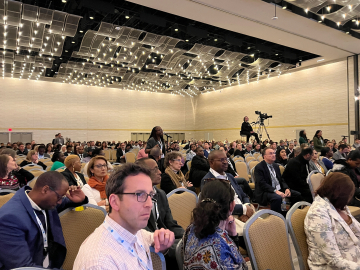Breaking Through the Bias
Health inequities undercut the strength of health systems, and the payoffs for investing in health equity require community-level change, said panelists at the Clinton Foundation Health Matters Activation Summit earlier this week.
The US is off the charts on preventable diseases, with a terrible record—exacerbated by inequities—ompared to other developed countries, said moderator Maya Rockeymoore, PhD, the president and CEO of Global Policy Solutions. Furthermore, many health systems don’t collect the right data—and there is a pushback. Unfortunately, we live in a world where there are not only unconscious biases, but explicit biases, and some people are determined to suppress data collection that could advance integrated equality.
We need to collect data by race, ethnicity, and disability, added Georges C. Benjamin, MD, executive director of APHA. He emphasized that if we stop doing that we’ll find our costs soar—it is an investment that makes economic sense. “If we want to be stupid, and I mean ignorant and unknowledgeable, then hide the number. If you want to be smart and strategic get the data, analyze it, and make strategic decisions. Hiding does no good, it only get pushed further downstream.”
Drew Boshell, a Special Olympics International senior vice president, offered some concrete ways to cut through the bias:
- If you work for a medical school, make sure your curriculum is not outdated
- In continuing education: make sure you’re inclusive in terms of disability, race, and gender
- Consider gender bias—we can’t progress while repressing 51% of the population
- Humanize the data collection
A smiling child holds a soccer ball in Shirazi Village, Kenya. ©2012 Aubrey Winkie/Photoshare





